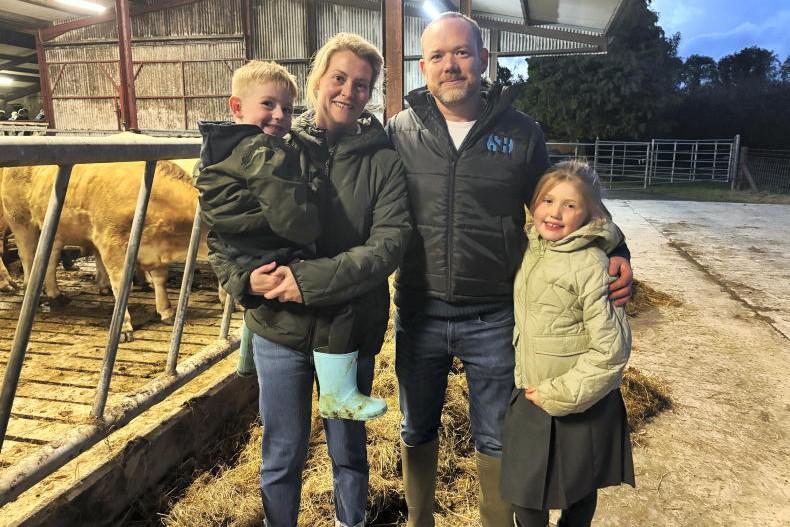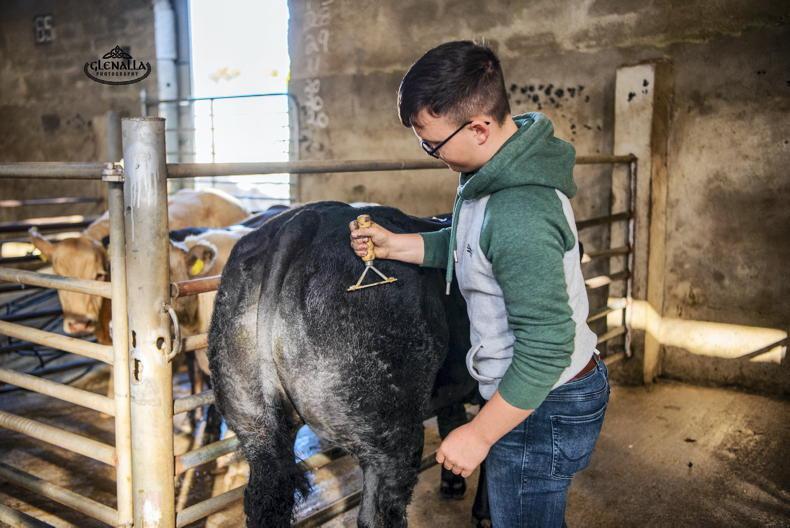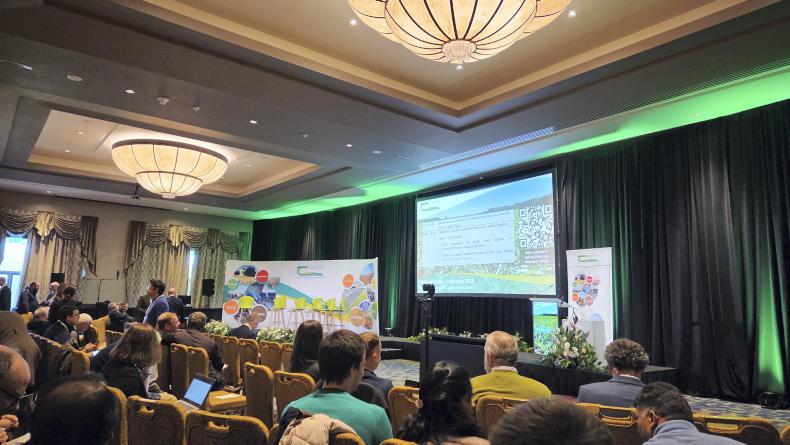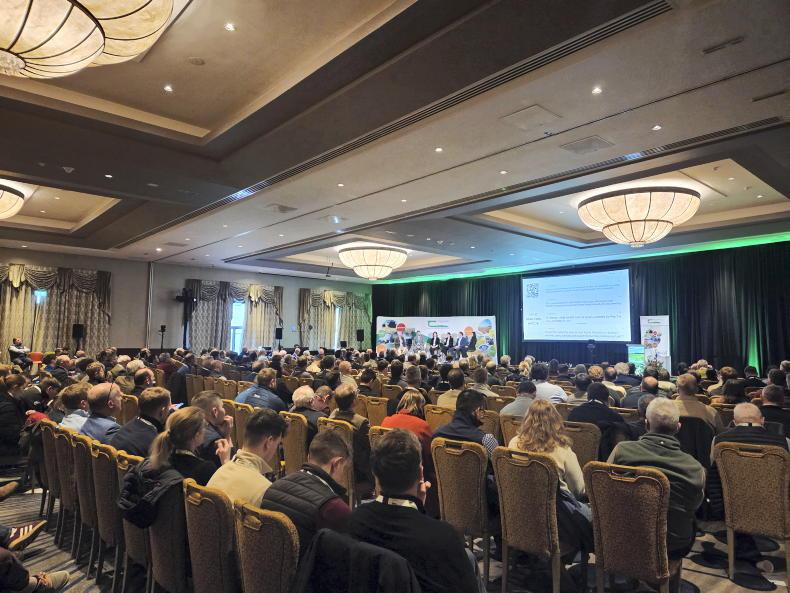A key part of the Department of Agriculture’s Young Farmers Scheme webinar held on Tuesday included advice on what participants can expect during the inspection process.
The inspection is divided into two main parts – a land eligibility inspection and an assessment to ensure compliance with scheme requirements.
The rate of inspections under the scheme was historically 5%, but this has increased to 10% since 2020 as per EU regulation guidelines.
Part 1: land eligibility inspection
The land eligibility inspection is similar to any land eligibility inspection for cross compliance. There is a check to see that the lands claimed for payment are eligible for the Basic Payment Scheme, Areas of Natural Constraint or Young Farmers Scheme.
Lands will be checked through either remote sensing or a ground inspection.
It must also be deemed as an agricultural area, which is land that is available to the participant and suitable for agricultural production.
Vegetation present that is not used for cropping must be grazable and there must be evidence of an agricultural activity on each land parcel.
Part 2: compliance with requirements
The first point highlighted in the Young Farmers Scheme is that there is generally up to 48 hours notice given in advance of an inspection taking place. The young farmer participant will be advised of the process of the interview and the documentation required.
There are also two main aspects to this part of the inspection – an assessment to identify if the young farmer has managerial control of the holding and a financial check to see that the young farmer has control in this manner.
Managerial control
Managerial control will be established during the course of the interview. The inspector will ask questions that establish the participants' knowledge of the farming system.
The interview will be carried out solely with the young farmer. There is a prescribed list of questions that explore knowledge of the day-to-day running of the operation, developed in a manner that allows answers to be validated.
The Department explains that there is generally five to six questions per enterprise on the holding.
Financial control
The financial control will include an examination of receipts or invoices for farm enterprises. A specific sample of transactions will be checked for each enterprise.
For example, this could be milk or livestock sales and invoices for inputs purchased. The level of transactions must be reflective of the size of the enterprise.
The inspector will also check to see that the bank account used for transactions is also under control of the scheme participant.
This will be solely in the case of an individual participant and can be jointly for partnerships. The bank account must contain the name of the participant.
The documents checked will be photocopied or photographed and retained on file. If the required documentation is not available on the day of inspection, the inspector will issue a document request letter listing the documents which must be provided within 14 days.
If the required documents are not submitted, then the young farmer will be deemed ineligible for payment.
Examples of common non-compliance include a failure to demonstrate managerial control. This is usually identified through a lack of knowledge of farm operations.
The Department also commented that it is not uncommon for the applicant to fail to show up to the interview.
With regards financial checks, the common issues are the Department being unable to trace financial transactions through a bank account under the control of the applicant or a different bank account being used not in her/his control.
In the case of sole operators, a common non-compliance is the bank account being under the control of the young farmer and another farmer.
In the case of partnerships, issues highlighted include a bank account being in the control of the young farmer and the partner, but also another farmer not involved in the partnership.
A key part of the Department of Agriculture’s Young Farmers Scheme webinar held on Tuesday included advice on what participants can expect during the inspection process.
The inspection is divided into two main parts – a land eligibility inspection and an assessment to ensure compliance with scheme requirements.
The rate of inspections under the scheme was historically 5%, but this has increased to 10% since 2020 as per EU regulation guidelines.
Part 1: land eligibility inspection
The land eligibility inspection is similar to any land eligibility inspection for cross compliance. There is a check to see that the lands claimed for payment are eligible for the Basic Payment Scheme, Areas of Natural Constraint or Young Farmers Scheme.
Lands will be checked through either remote sensing or a ground inspection.
It must also be deemed as an agricultural area, which is land that is available to the participant and suitable for agricultural production.
Vegetation present that is not used for cropping must be grazable and there must be evidence of an agricultural activity on each land parcel.
Part 2: compliance with requirements
The first point highlighted in the Young Farmers Scheme is that there is generally up to 48 hours notice given in advance of an inspection taking place. The young farmer participant will be advised of the process of the interview and the documentation required.
There are also two main aspects to this part of the inspection – an assessment to identify if the young farmer has managerial control of the holding and a financial check to see that the young farmer has control in this manner.
Managerial control
Managerial control will be established during the course of the interview. The inspector will ask questions that establish the participants' knowledge of the farming system.
The interview will be carried out solely with the young farmer. There is a prescribed list of questions that explore knowledge of the day-to-day running of the operation, developed in a manner that allows answers to be validated.
The Department explains that there is generally five to six questions per enterprise on the holding.
Financial control
The financial control will include an examination of receipts or invoices for farm enterprises. A specific sample of transactions will be checked for each enterprise.
For example, this could be milk or livestock sales and invoices for inputs purchased. The level of transactions must be reflective of the size of the enterprise.
The inspector will also check to see that the bank account used for transactions is also under control of the scheme participant.
This will be solely in the case of an individual participant and can be jointly for partnerships. The bank account must contain the name of the participant.
The documents checked will be photocopied or photographed and retained on file. If the required documentation is not available on the day of inspection, the inspector will issue a document request letter listing the documents which must be provided within 14 days.
If the required documents are not submitted, then the young farmer will be deemed ineligible for payment.
Examples of common non-compliance include a failure to demonstrate managerial control. This is usually identified through a lack of knowledge of farm operations.
The Department also commented that it is not uncommon for the applicant to fail to show up to the interview.
With regards financial checks, the common issues are the Department being unable to trace financial transactions through a bank account under the control of the applicant or a different bank account being used not in her/his control.
In the case of sole operators, a common non-compliance is the bank account being under the control of the young farmer and another farmer.
In the case of partnerships, issues highlighted include a bank account being in the control of the young farmer and the partner, but also another farmer not involved in the partnership.










SHARING OPTIONS